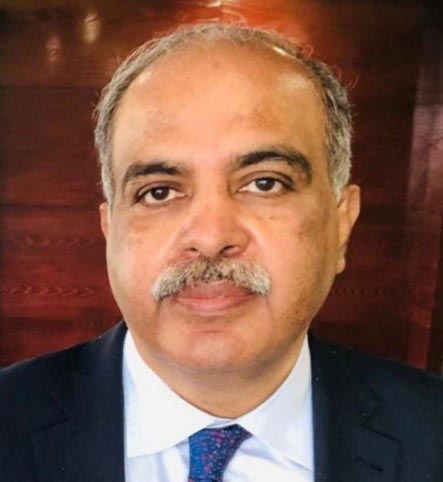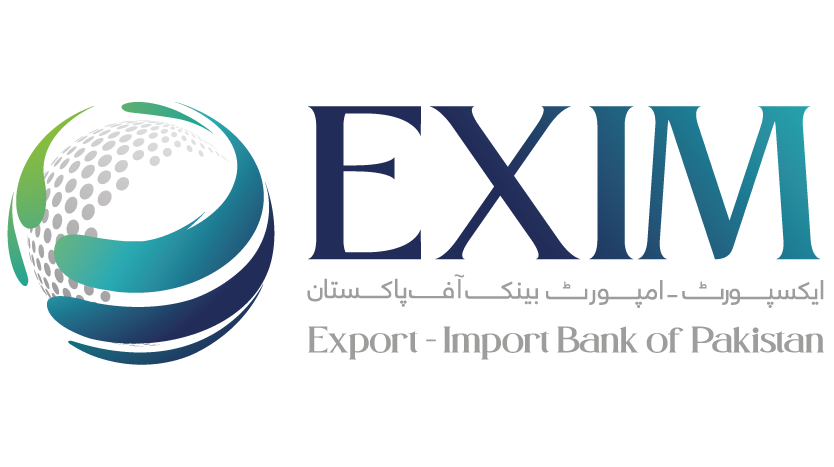It’s an interesting time to be setting up a new export-oriented development financial institution, but Irfan Bukhari, President, and CEO of EXIM Bank of Pakistan is brim full of enthusiasm about the opportunity and his journey. Bukhari, a former stalwart of the IsDB Group, tells us about his aspirations for the development bank with a mission ‘supporting export growth through diversification’.
You are establishing a restructured export credit agency (ECA) for Pakistan. What is it that an ECA can do to help encourage exporters and help diversify exports? Where are you now in the journey?

Irfan Bukhari:
EXIM Bank of Pakistan is not a restructuring, it’s a brand new institution which is undergoing a process of being created/being inaugurated soon. It is a new institution of the Government of Pakistan, and it’s a start up. I’ve been engaged with this institution for the last 18 months or so. When the new management team and the Board took hold of this institution, it had progressed hardly 5%. Eighteen months later we have already applied to the authorities for commencement of business. This could not have been possible without the support of not only the stakeholders in Pakistan but also the support we received from multilaterals such as ICIEC, the IsDB Group, and the Asian Development Bank.
The Government of Pakistan has made a policy decision to set up an EXIM Bank for Pakistan, which is different from an ECA. ECAs only provide only products and are engaged in supporting exports only. On the other hand, an Export Import Bank (EXIM) not only provides insurance products of an ECA, but also provides financing. Also, EXIMs support import substitution projects, with a focus on the ones that are also export oriented.
EXIM banks contribute not only to protecting exporters from the risk of default by a buyer, but also are able to provide financing for working capital and capital investments. The latter helps in increasing the production capacity of exporters – if they can produce, they can export. EXIM’s mandate is the sum-total of the business undertaken by PPP, ICIEC, ICD, and ITFC. Therefore, we are partnering very closely with the IsDB Group as there are many synergies that can be exploited for the mutual benefit of meeting our respective mandates.
Can you tell us a little about your own journey into this role and the general vision you have for EXIM Bank of Pakistan?
Irfan Bukhari:
I started my career as a commercial banker in Pakistan some 37 years back, much involved in trade and corporate finance. I attended Queens University in Canada for my MBA – a very educating experience, and thereafter worked with their EXIM [EDC] and learned project financing from very experienced practitioners. I joined the IsDB Group in 2000 and had the most rewarding, exciting and enjoyable next 20 years – undertaking exciting and in some cases, ground-breaking infrastructure projects in Asia, Africa, Middle East and the CIS countries and personally developing many skills and understanding development banking.
Moving from the IsDB was not an easy decision but EXIM was also a great/once in a lifetime opportunity. To be honest, Mr Oussama Kaissi [CEO of ICIEC], was more excited for me than I was at the time! That made things easier for me. I have been in the current role since September 2020, with the grace of God, I have enjoyed every moment of building EXIM Bank of Pakistan – we are a small dedicated, result oriented team. The full support and trust of the board certainly made things much easier. In March this year we applied for Commencement of Business to our regulators, and we expect to be operational soon.
My personal vision for EXIM is 100% aligned with the vision of the Bank, namely to contribute towards a sustainable and positive trade balance for Pakistan. I think our plans on how to reach that is where the operational excitement comes, with many challenges that provide us the opportunity to show our mettle to deliver our products that are unique and much required in the market.
In Pakistan, like in many countries, access to financing for small and medium sized (SME) exporters is relatively limited. EXIM will contribute to changing this by finding the right risk balance in our portfolio between different sectorial, regional and exporters categories (SMEs, corporate, banks, etc) and provide more and more support to SMEs. We have and will continue to invest heavily in technology, risk assessment, impact measurement, and management.
It certainly is a challenging time in the global economic context – what will be the main priorities over the next year? What will constitute ‘success’ on a five year view?
Irfan Bukhari:
I think the biggest success would be to launch the Bank within the shortest possible time. We have made a request to our regulator to provide us with commencement of business certification. In order to do that we still need an Act of Parliament.
The Government of Pakistan’s Strategic Trade Policy Framework (STPF) has many aspirations. While EXIM will obviously be supporting traditional export sectors such as textiles, fruits and vegetables etc, it will also have a special emphasis on sectors where EXIM can have the largest impact. We would like to get more and more involved in areas which are new and have a bigger ‘bang for the buck’.
- As an example, software exports have taken a foothold during COVID-19 with some buyers preferring to buy from Pakistan where COVID lockdowns were limited (‘Smart-lockdowns’) and in fact exports increased during the period. Software exports have a high level of local content, and therefore the most direct impact on our vision – they do not need a significant amount of imports to support these exports.
Software exporters’ main asset is their intellectual capabilities, their company balance sheets do not always have significant assets to pledge to any bank, and therefore, do not get bank financing. EXIM will have the capacity to take risks on the international sales contracts of exportersand provide funding against such contracts. EXIM believes that interventions such as these can have a huge impact on export growth of the industry, employment, and entrepreneurship. This Software Export Expansion Program (SWEEP) has already attracted the attention of local and international banks in Pakistan as well as the government-run Software Export Board.
- EXIM would also like to support and encourage Pakistan-based engineering companies to build more bridges, power plants, roads, and dams outside Pakistan, and EXIM will want to assist them in arranging buyers’ credit. ICIEC and its partners such as SMBC, JP Morgan etc, will, we envisage, play a significant role here.
- EXIM will work with multilateral development banks (MDBs) to assist Pakistan in issuing green Sukuk and bonds to enable our exporters to increase the green footprint in their export processes.
- Finally, we would from day minus-one, create a reputation of professionalism, efficiency and be a dependable development bank for exporters with state-of-the-art systems and impact assessments.
Partnerships will clearly be an important area for EXIM Bank of Pakistan to explore – how best can international insurance organizations such as ICIEC and members of IsDB and other global ECAs and DFIs go about finding out about your plans and agenda?
Irfan Bukhari:
Partnerships will be an important pillar for our expansion. For EXIM, one of the key areas of support that it will provide is the expansion of manufacturing and production capacity in the country. This is critical as over the last many decades, there has been a steady decline in this area (as a percentage of GDP), while for our competitor nations, the trend has been in the opposite direction.
Pakistan buys a lot of manufacturing equipment from Asia as well as Europe and the US. We will join hands with the EXIMS/ECAs in these countries for them to support their exports of machinery and equipment, assist them in due diligence, perhaps share a portion of their risk and have them take the risk on the Pakistan enterprise. This will increase the amount of risk capital in Pakistan significantly. We also aspire to join hands with some EXIMs to partner in undertaking larger projects in third countries where both countries’ exporters execute projects in partnership.
Relationships with institutions like ICIEC and IsDB are critical. Besides the fact that I feel at home working with the brilliant teams in these institutions, their Chief Executives have in fact introduced EXIM Bank of Pakistan to some of the EXIMs and encouraged them and us to work together. When the President of the Bank does this, it is a support like no other for a young and upcoming EXIM, and an endorsement that only encourages us to be more vigilant and responsible for the relationship.
Do you have ambitions on the digitisation and technology agenda with a ‘clean slate’?
Irfan Bukhari:
Digitisation and technology are a priority on our agenda. We believe that exporters need timely information to be able to secure export orders and to be able to make informed decisions. The reinsurance arrangements that we are structuring with ICIEC will provide us with access to credit information to some 200 million buyers around the world.
In order to exploit this to the maximum benefit of exporters, we are engaging with the very best (no compromise here) software providers and each one of them is very competitive. With AI integration, we expect to get automated underwriting for a portion of the risk (albeit low to begin with).
Digitisation will also assist EXIM in using the data created for marketing, product development and focused support to exporters.
EXIM will digitise each and every part of its business to create opportunities. The objective will be to effectively use state-of-the-art solutions and to integrate them on a real-time basis. This means digitalising the complete customer experience and journey with the EXIM Bank, starting from on-boarding, KYC, AML/CFT checks, compliance/regulatory checks, product offering, relationship management through digital channels, and all other aspects involved in business processes. At the same time, EXIM will ensure that we opt for a ‘pay as you grow’ model and will try to take leverage of ‘cloud solutions’ to ensure that the cost is rationalised as digitalisation is achieved.
How are you planning to align with the broader global sustainable development goals (SDG) agenda in your mission?
Irfan Bukhari:
SDG 17 talks about partnerships and 17.11 talks about the growth of exports of developing countries. SDG 5 talks about Gender Equality with emphasis on equality under SDG 5.5. Then there are others such as SDG 1 (no poverty), SDG 3 (good health and wellbeing) SDG 8 (decent work environment) SDG 10 (reducing inequalities) which also impact EXIM’s operations. I am sure there might be others.
Let me focus on the first two.
To contribute towards 17.11, EXIM will focus on the global/local trends impacting exports. Exporters in Pakistan have started focusing more and more on sustainability making significant investments to ensure ‘green-exports’ which not only is good for the environment but also for business and are within the Voluntary Sustainable Standards (VSS) which address some sustainability metrics such as the environment, human rights, labour, or gender equality. Adherence to the above requires capital investment/long-term debt, in most cases.
EXIM plans to work with MDBs such as IsDB/ICIEC to create a pool of long-term financial resources for VSS Equipment Financing, perhaps a Green Bond if there is sufficient volume for green and sustainable exports.
In terms of gender equality, the central bank has taken this issue up under the banner of ‘Equality in Banking’. Given the importance of this issue for sustainability, the Governor of the central bank has taken a lead on this and is assisted by his able deputy Governor. At EXIM, I am happy to state that of the first three staff we bought into EXIM, two were women.
And on the ESG side, there is a lot of overlap with SDGs. In terms of sustainability, our exporters will benefit and be the preferred supplier if they are ESG compliant. That is why slowly but surely exporters have started addressing this. We just want to accelerate that in a big way. As the development bank, we will have the capacity and the capability, and the risk to do this as well, and the partnership angle will come in to play here too, as they will be giving us risk appetite. As I say, we are using our limited resources to show our mettle to leverage in a risk intelligent way and that is where the ‘oh wow!’ factor will come in.
The interview was originally posted on:
https://iciec.isdb.org/insights/on-the-road-to-lift-off-with-pakistans-new-exim-bank/




